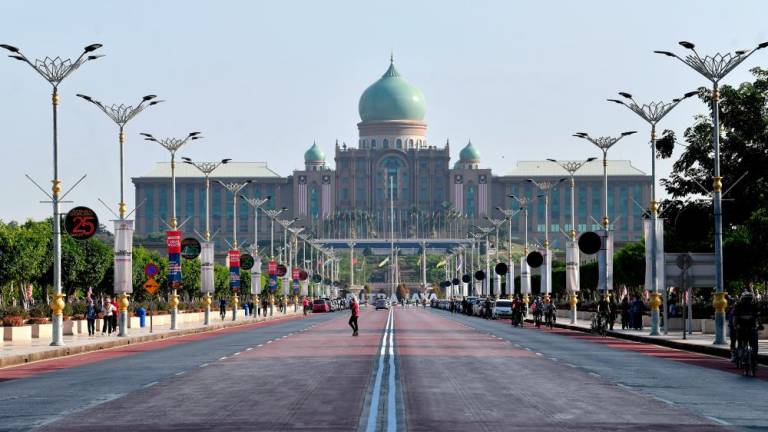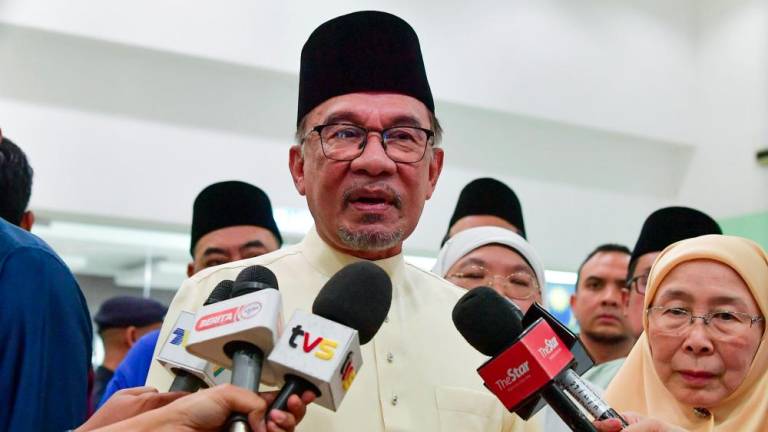AS Beijing develops its common prosperity model of development, the reverberations are being felt in share markets around the world. Nervous fund managers are looking at their China portfolios and journalists associated with Western mainstream and corporate media such as the Wall Street Journal, Bloomberg, CNN and the Financial Times have found a new reason to demonise China and engage in more anti-China write-ups.
The message going out now from the China bashing ideologically fixated Western media is not only how investments in Chinese stocks in sectors such as education, big tech, property and services are affected by a range of new policies. It is to sound alarm bells on what some alarmist commentators are describing as the ideological ramifications of China’s “new” socialism.
According to a recent piece in the National Review, the influential American semi-monthly conservative editorial magazine, which focuses on news and commentary pieces on political, social and cultural affairs: Now, however, global investors can
no longer dismiss the image the Chinese Communist Party (CCP) cultivates at home.
This is an image of a recalcitrant but evolved Marxism, a new socialism adapted for the 21st century and ready to harness the power of the profit motive to serve the interests
of the CCP. And apparently according to the article writer, this “new socialism” or “Marxism with Chinese characteristics based on the power of the profit motive is being launched to take over the United States and the rest of the world.
Common prosperity principles
So what exactly is it that has the Western media in a tizzy, and its knickers in a twist? In a recent August meeting reviewing the state of the nation’s economy, the Communist Party of China emphasised that:
0 China would focus on moderate wealth for all, rather than just a few;
0 Planned measures included curbs on “excessive” incomes and encouraged the wealthy to give back more to society.
The principles of “common prosperity” for the next stage of China’s development to become a modern socialist country were announced as a strategy to enable all citizens to share in the opportunity to be wealthy.
The meeting notes emphasised too that it was a means to “properly deal with the relationship between efficiency and fairness”.
Sustainable and balanced development
There is nowhere in the meeting notes and reporting that anyone can use to accuse the Chinese authorities of being anti-capitalist; or stamping out free markets and private enterprise; or working towards the goal of absolute equal distribution.
In fact, according to a CNBC translation, the following assurance to the party (and possibly also to China watchers) was made by President Xi Jinping: “Finance is the core of modern economy, with ties to development and security. It must follow the principles of marketisation and the rule of law, and coordinate the prevention and resolution of major financial risks.”
What is clear in this state media prominently reported event, immediately following on the party’s celebration of its 100th anniversary in July, which pledged to modernise China and rejuvenate its people, is not just the party’s determination to better its governance practices through the crackdown on big tech, financial corruption, manipulative practices of the free market and other economic laissez-faire abuses and distortions.
Of larger concern – though not explicitly and publicly laid out in detail – is the awareness that the income disparity between rich and poor in China needs to be addressed aggressively.
Despite the remarkable success of the country’s anti-poverty programme, inequality in China has grown substantially. According to a Credit Suisse report, China had over US$5 million (RM20.75 million) millionaire households by the end of last year.
In 2020, the wealthiest 1% of Chinese people held 30.6% of the country’s wealth, up from 20.9% two decades ago. How effective these latest moves, aimed at curbing the excesses that have blighted the Western model of neo-liberal economics during the past 40 years can be, remains to be seen.
This recalibration of Chinese economic policy, which is aimed at strengthening the lower and middle income households shares of the economy, is in many ways quite unprecedented.
It is also happening at a time of multiple crises which the party has to deal with, arising from the excesses of the earlier reform and opening up of the economy and country, the growing corruption and abuses of power within the party’s leadership working with private sector cronies as well as by a much more hostile external environment today and in the foreseeable future.
However, it is a battle, which even if it achieves modest results, can point the way to another model of development that is more sustainable, more accountable and balanced, and avoids the pitfalls of the “middle income trap”.
For now two small wins can be discerned.
The first – the rollback of the privatisation of public services in education, elderly care and medical care – has begun with the government emphasising the importance of inclusiveness and affordability to service providers. This important win has been a battle which the traditional left in the US, Britain and other Western countries has not been able to achieve.
The second, which focuses on “third distribution”, refers to the state’s “encouragement” to high-income groups and enterprises to give back to society some of their oversized wealth, including through voluntary gifts and charitable donations. Thus earlier in April, internet mogul Pony Ma, the founder of Tencent H known for its social messaging apps WeChat and QQ – pledged US$7.7 billion of company money to clean energy, education and village revitalisation initiatives.
Fortune has reported that in the past eight months, five of China’s richest and most high-profile tech billionaires have pledged at least US$13 billion of their personal or corporate fortunes to charitable foundations and initiatives. This is a sum that will surely grow.
Many countries, including the United States, grappling with how to redress the entrenched rich-poor polarisation and the absence of balance and sustainability, stemming from the application of neo-liberal ideology, would do well to follow closely the Chinese progress with their “common prosperity” challenge, and perhaps even emulate the CPC reform policies now being implemented.
First of two articles on China’s new socialism. Lim Teck Ghee’s Another Take is aimed at demystifying social orthodoxy. Comments: letters@thesundaily.com















